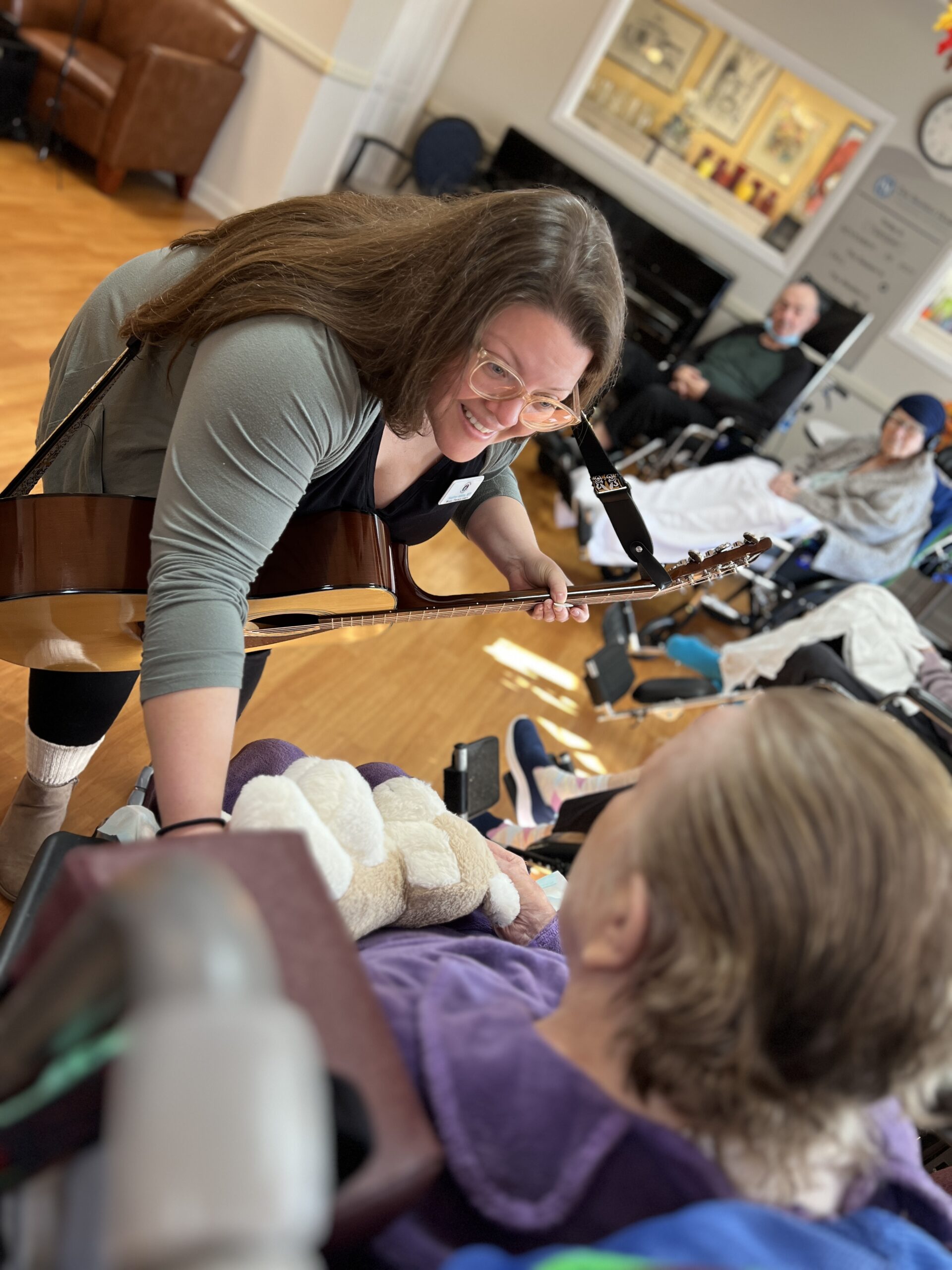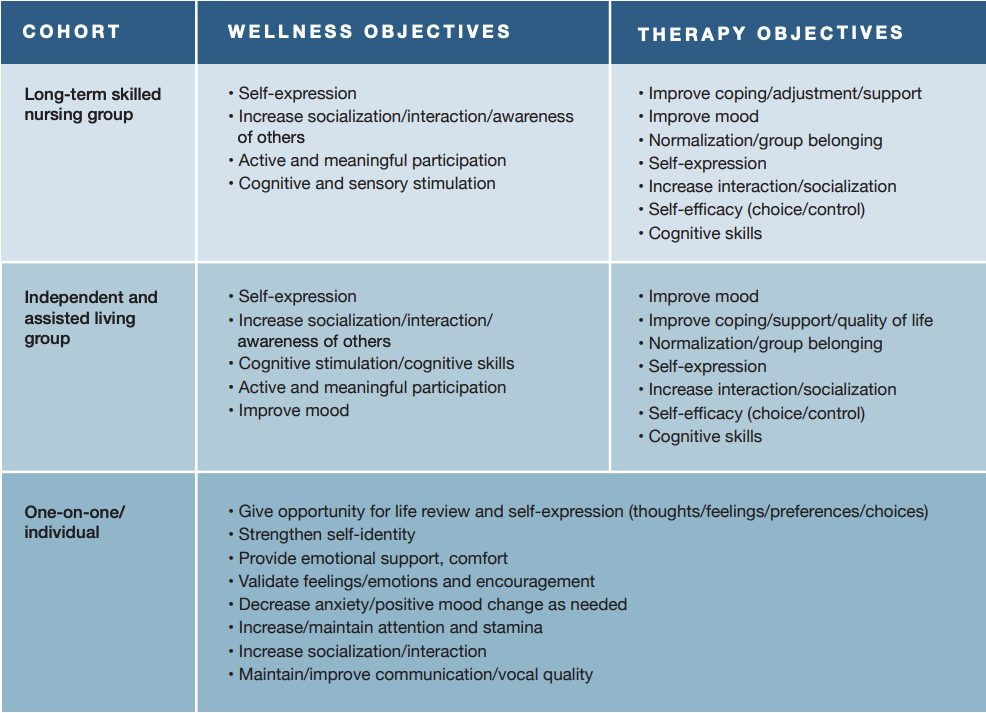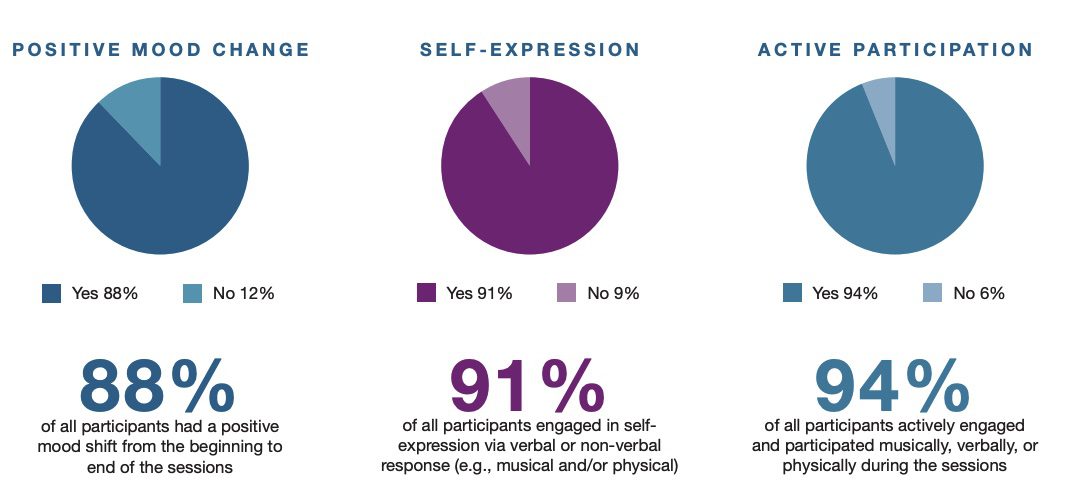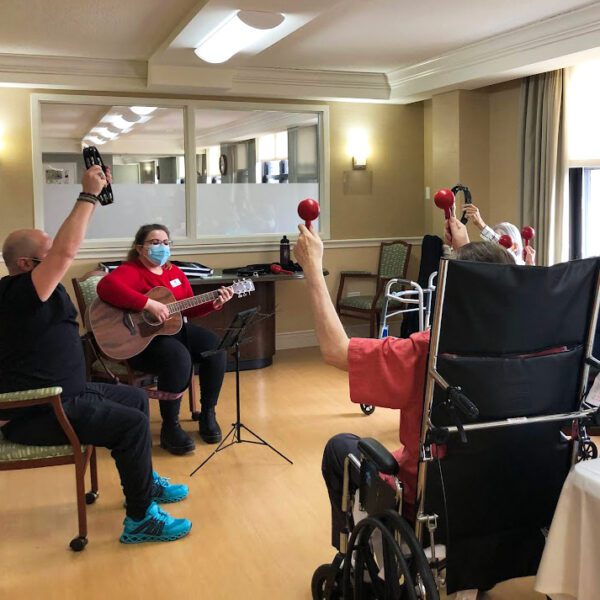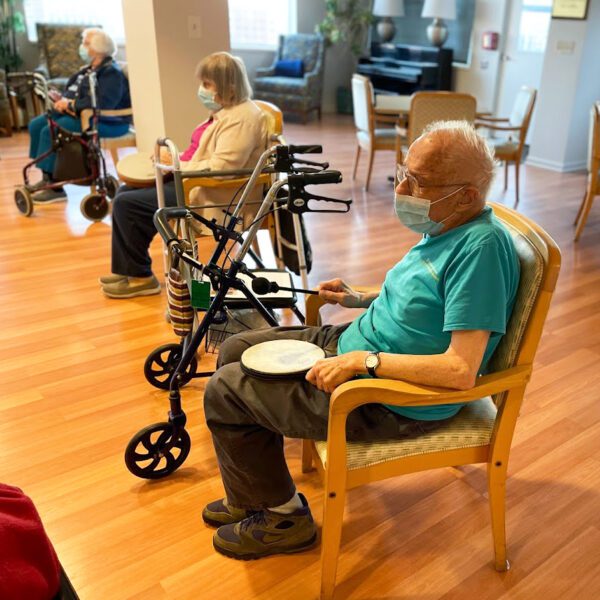Our Music Therapy Program
The Selfhelp Home implemented a comprehensive music therapy program for its residents in October 2021.
The Selfhelp Home proudly introduced our Comprehensive Music Therapy Program and Comprehensive Staff Dementia Training, supported by the vision of former board member Craig Tuber and underwritten by a generous grant from The Friedmann Family Foundation. This initial stage of the program is designed to bring music therapy to residents with dementia, as music has been shown to be highly effective in engaging people with dementia and improving their mood, interactions, and overall mental health.
Selfhelp has a strong history of music programming and continues to bring unique and high-quality music experiences to the residents for enrichment. Our Friedmann/Tuber Program for Cognitive Therapies is fast becoming one of the crown jewels in the Selfhelp cognitive and cultural programming. The program has been implemented under the leadership and supervision of our partners at Greater Chicago Music Therapy.
Musical memories are often preserved for individuals even when other memories begin to decline. The aim of music therapy in individuals with memory loss is to address emotions, cognitive powers, and thoughts and memories. It aims to enrich and give freedom, stability, organization, and focus. In fact, musical perception, musical emotion, and musical memory can survive long after other forms of memory and cognitive function have disappeared.
Selfhelp designed our Music Therapy Program so we can track its impact on our residents. Working with our partners from Greater Chicago Music Therapy and best practices in care for people with dementia, we established program objectives and documented participants’ outcomes with this new intervention. Below we share our very exciting progress from the first year of the Music Therapy Program.
“Musical memories are often preserved for individuals even when other memories begin to decline.”
Program Objectives
The first phase of the Selfhelp Comprehensive Music Therapy Program was offered to select groups of long-term skilled care residents and independent and assisted living residents. Participants were identified by Selfhelp professional staff, using criteria and guidance provided by Greater Chicago Music Therapy professionals, in order to engage a limited number of residents with dementia in the initial pilot phase of the program. Originally designed to be administered in both group and individual settings, the Selfhelp Comprehensive Music Therapy Program was adjusted for individual implementation as well, due to restrictions presented by the COVID-19 pandemic. Interventions were tailored for each cohort’s specific needs.
Program Participation
Over the first three quarters of the Friedmann/Tuber Program for Cognitive Therapies, Selfhelp convened 141 sessions, 68 full-length individual sessions, and 188 abbreviated individual sessions, with an average number of eight participants in each group.
Program Impact
Preliminary program data was collected in each session for all individuals present at both individual and group sessions. Data collection with dementia patients is often subjective and is based on individual factors (e.g., disease progression, diagnosis, anecdotal evidence, etc.).
Resident Stories: Music Therapy Progress
Resident #1
A resident was referred to Music Therapy due to increasing isolation, withdrawal, confusion, and an overall progression of her dementia. She presents with an extremely flat affect and usually gives one- to two-word answers that are vague and convey a lot of apathy. She spends most of her days in her room bed-bound. Often, she turns away physical and occupational therapy appointments, but she does allow the music therapist in every week. The resident’s private care partner calls the resident’s family members via FaceTime to have them join in during their individual sessions. One week, the resident’s granddaughter had learned a song on the ukulele previously incorporated in Music Therapy, so she sang and played along with the music therapist, encouraging her grandmother to participate. Together with her two children and two grandchildren on the line, the resident danced and sang in her bed along to the music and her cheering family.
Resident #2
A participant in the assisted and independent living therapy group had been engaging in the group interventions. Though she struggled with aphasia and dementia, she has been quite successful in the group sessions and used the music to interact non-verbally with others. Over the course of the quarter, she had a health status decline and was no longer able to benefit from the group. The music therapist has been able to continue seeing her for individual sessions, drawing upon her tendency to engage in rhythm and movement along with the music that remained strong despite her health setback. The focus of individual sessions was adapted, and the music therapist implemented music therapy interventions to calm the resident’s agitation and to redirect her to do something else (e.g., getting out of bed) while engaging and interacting as much as possible. The resident’s strong connection to rhythm and natural inclination to participate was strong during the group and remained strong in individual sessions despite her cognitive decline.
Resident #3
On a beautiful, sunny day, the music therapist brought a resident to the rooftop garden to have her individual music therapy session. They sat in the shade while discussing the resident’s favorite things to do in a Chicago summer. They sang songs like “Oh, What a Beautiful Morning,” “Blue Skies,” “You Are My Sunshine,” and “Chicago.” This resident’s baseline is usually very lethargic and mildly anxious about various things. At this session, the resident remained awake for the duration of the session and fully engaged in the music and conversation. The resident thanked the music therapist for taking her outside and for spending the time together. This experience provided the resident opportunities to meaningfully connect, engage, give autonomy, create a positive mood change, and enhance her quality of life.
Next Steps: Expanding The Program
The first three pilot quarters of the Friedmann/Tuber Program for Cognitive Therapies have been very successful, based on participation, impact, and anecdotal metrics. Selfhelp plans to expand the reach of the program to include more participants.
We have begun to market the impact of our Music Therapy program through our website, newsletters, and community outreach, as the program differentiates and distinguishes us from other senior communities and is a leading-edge solution for dementia care.
In addition to implementing the program with dementia patients, we are expanding our efforts with patients with early dementia, as Music Therapy has proven to be a powerful intervention in delaying the onset of dementia and other cognitive challenges.
The Friedmann/Tuber Program for Cognitive Therapies has implications far beyond The Selfhelp Home, as the impacts our residents have enjoyed can be experienced in any facility that cares for dementia and early dementia patients. Our program can be shared with many other care organizations and impact many, many more lives.


